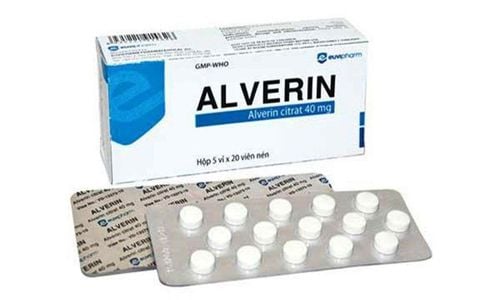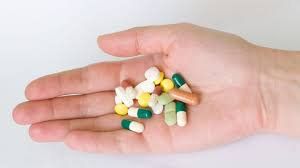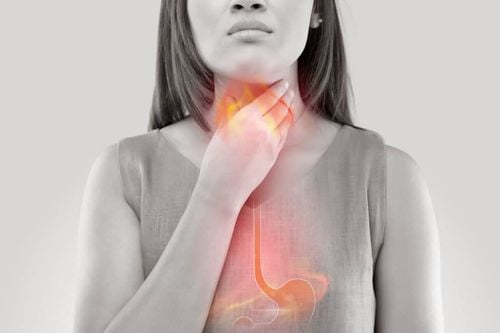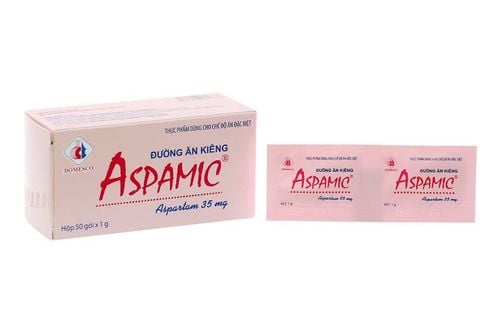This is an automatically translated article.
Posted by Master, Doctor Mai Vien Phuong - Department of Examination & Internal Medicine - Vinmec Central Park International General Hospital
Acid reflux occurs when substances from the stomach move up into the esophagus. It is also known as acid reflux or gastroesophageal reflux. If you have symptoms of acid reflux more than twice a week, you may have a condition known as gastroesophageal reflux disease (GERD), which, if left untreated, can sometimes cause symptoms. cause serious complications.
1. GERD symptoms
Acid reflux can cause an uncomfortable burning sensation in the chest, which can spread to the neck. This sensation is often referred to as heartburn.
If you have acid reflux, you may have a sour or bitter taste in the back of your mouth. It can also cause you to regurgitate food or liquid from your stomach into your mouth.
In some cases, GERD can cause difficulty swallowing. Sometimes it can lead to breathing problems, like a chronic cough or asthma.
2. Diagnosis of GERD
If your doctor suspects you may have GERD, they will conduct a physical exam and ask about any symptoms you are experiencing.
They may use one or more of the following procedures to confirm the diagnosis or check for complications of GERD:
Contrast barium X-ray : After drinking barium solution, X-ray images are used to check Check your upper digestive tract Upper gastrointestinal endoscopy: A flexible tube with a small camera is threaded into your esophagus to examine it and collect a tissue sample (biopsy) if needed Esophageal manometry: One a flexible tube that is threaded into your esophagus to measure the strength of your esophageal muscles Esophageal pH monitoring: A monitor is inserted into your esophagus to find out if and when stomach acid enters your esophagus

3. Potential Complications of GERD
In most people, GERD does not cause serious complications. But in rare cases, it can lead to serious or even life-threatening health problems.
Potential complications of GERD include:
Esophagitis, an inflammation of your esophagus Esophageal stricture, which occurs when your esophagus narrows or tightens Barrett's esophagus, associated with permanent changes esophageal cancer, which affects a small percentage of people with Barrett's esophagus Asthma, chronic cough or other breathing problems, can develop if you inhale stomach acid thickening of the lungs Enamel erosion, gum disease, or other dental problems To reduce your risk of complications, it's important to take steps to prevent and treat the symptoms of GERD.
4. Diet and GERD
In some people, certain foods and drinks trigger symptoms of GERD. Common dietary triggers include:
High-fat foods Chocolate spicy foods Citrus fruits Pineapple Tomato Onion Garlic Mint Alcohol Coffee Tea Soft drinks Elements Dietary stimulation can vary from person to person. Learn more about common food triggers and how to avoid making your symptoms worse.

5. Food can affect acid reflux symptoms
Acid reflux occurs when acid backs up from the stomach into the esophagus. This is common but can cause complications or bothersome symptoms, such as heartburn.
One reason this happens is that the lower esophageal sphincter (LES) is weakened or damaged. Normally, the lower esophageal sphincter closes to prevent stomach contents from moving up the esophagus.
The food you eat affects the amount of acid your stomach makes. Eating the right foods is key to managing acid reflux or gastroesophageal reflux disease (GERD), a severe, chronic form of acid reflux.
6. Can I eat sugar if I have acid reflux?
Consuming sugar in small amounts and without added triggers will generally not affect your acid reflux condition. For example, raw honey, jam, and maple syrup don't usually cause your symptoms.
Sugars in foods that cause irritation or in combination with irritating ingredients can cause symptoms.
Therefore, you should limit or avoid:
Chocolate Mint Citrus fruits High-fat foods Drinks that contain caffeine, such as coffee and tea
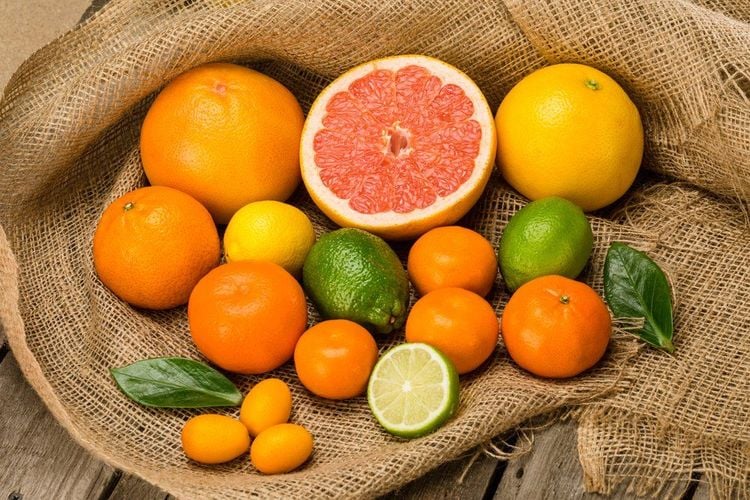
7. How to use sugar substitutes when cooking
If you want to cut your sugar intake, consider using a sugar substitute when cooking or baking. Many artificial sweeteners add little or no calories to your meals while still providing extra sweetness.
Common artificial sweeteners include:
Splenda Sweetener Sweet'N Low Sweetener Equal Sweetener You can also use a food substitute, such as honey or natural apple sauce However, instead of table sugar. This can give your recipe the sweetness it needs without the poor nutritional side effects.
Department of Endoscopy - Gastroenterology is one of the key specialties at Vinmec International General Hospital. For timely examination, advice and treatment of digestive diseases, you can contact Vinmec Health System nationwide or register online on the website for service.
Please dial HOTLINE for more information or register for an appointment HERE. Download MyVinmec app to make appointments faster and to manage your bookings easily.
References:Definitions and facts for GER and GERD. (2014, Nov. 13) niddk.nih.gov/health-information/health-topics/digestive-diseases/ger-and-gerd-in-adults/Pages/definition-facts.aspx Dietary changes for with GERD. (2016, February 15) aboutgerd.org/diet-lifestyle-changes/diet-changes-for-gerd.html Gastroesophageal reflux disease. (2012, January 23) my.clevelandclinic.org/health/diseases_conditions/hic_gastroesophogeal_reflux_disease_GERD Kubo, A., Block, G., Quesenberry, CP, Buffler, P., & Corley, DA (2014, Aug. 14) . Follow dietary guidelines for gastroesophageal reflux disease. BMC Gastroenterology bmcgastroenterol.biomedcentral.com/articles/10.1186/1471-230X-14-144 Mayo Clinic Staff. (2016, January 24). Added Sugars: Uninfested by sweeteners mayoclinic.org/healthy-lifestyle/ Nutrition-and-healthy-eating/in-depth/added-sugar/art-20045328 Nass-Jensen, E., Hveem, K., El-Serag, H., & Lagergren, J. (2016, February). Lifestyle interventions in gastroesophageal reflux disease [Abstract]. Clinical Gastroenterology and Hepatology, 14 (2), 175-82 cghjournal.org/article/S1542-3565(15)00635-7/abstract







